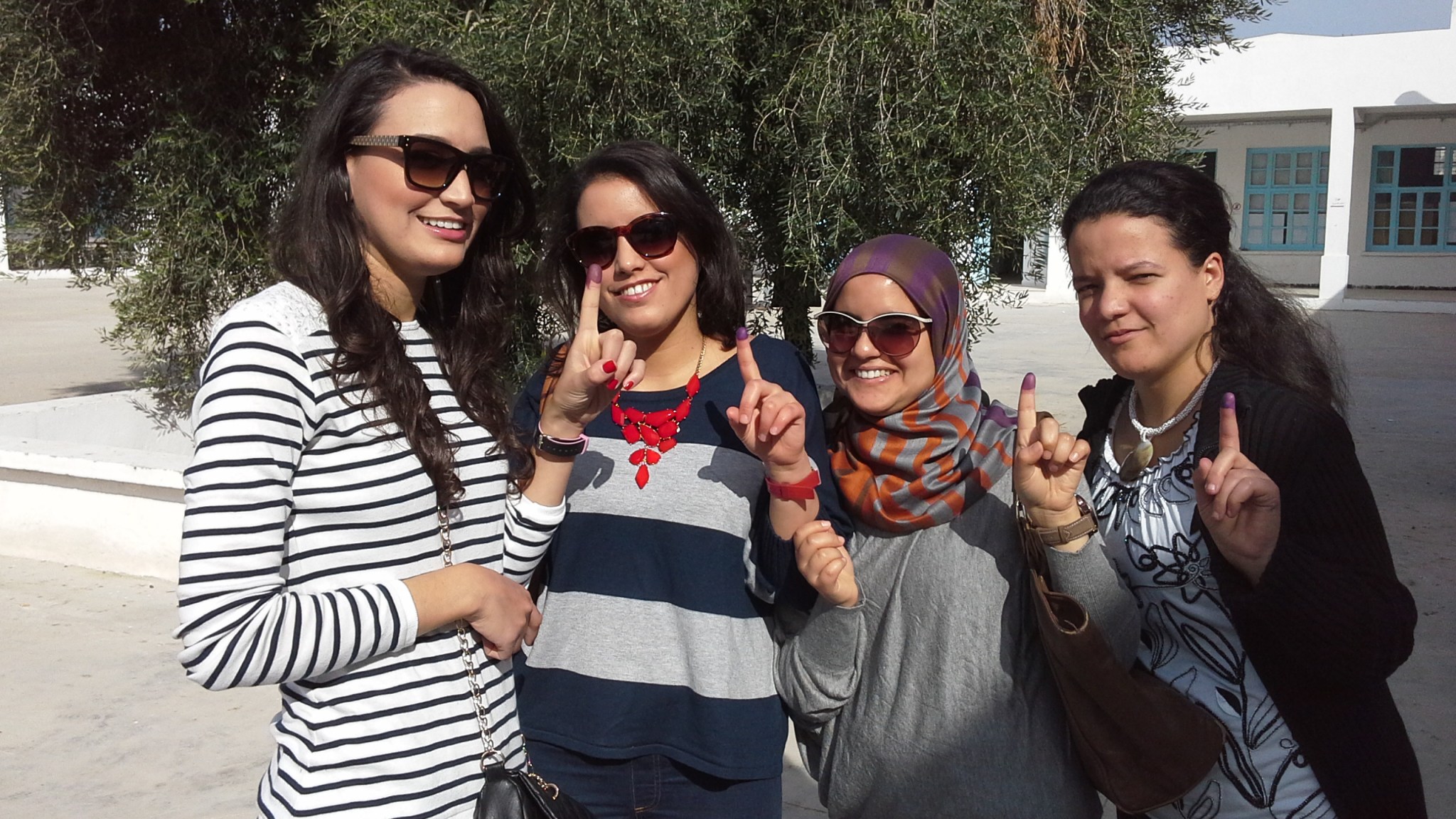NDI and IRI to Field Joint Tunisian Election Observation Mission

TUNIS – The International Republican Institute (IRI) and the National Democratic Institute (NDI) announced today the launch of their joint Election Observation Mission (EOM) for the September 15 presidential and October 6 parliamentary elections in Tunisia.
The 2019 presidential and legislative elections mark Tunisia’s fourth round of elections since the 2011 revolution. The elections will be held against a backdrop of citizens’ growing unease with the economic situation and disappointment in their political leaders. Repeated polling has shown high unemployment, especially among youth and in the country’s underdeveloped interior regions, and rising inflation are driving resentment toward the government for its inability to improve the lives of ordinary Tunisians. Despite their frustrations with the system, seven million Tunisians – the highest number in Tunisia’s history – are registered to vote and public opinion research conducted by NDI and IRI suggests that many intend to exercise their right to vote in the upcoming elections.
“The upcoming presidential and parliamentary elections will be a critical test, not only for democracy in Tunisia, but for democratic reform in the Middle East and North Africa,” said IRI President Dr. Daniel Twining. “Tunisia was the only country to emerge as a true democracy following the Arab Spring and the country has been on a democratic path since then. However, its citizens are frustrated with the country’s economic stagnation and the slow implementation of reform. All eyes will be on this emerging democracy during these elections and its outcome will have far-reaching consequences well beyond Tunisia’s borders.”
“The citizens of Tunisia will be able to choose from a wide field of candidates for the September 15 presidential contest and the October 6 parliamentary election,” said Les Campbell, Senior Associate and Director of NDI’s Programs in the Middle East and North Africa. “A peaceful, democratic transfer of power will send a powerful message of hope to Tunisia’s immediate neighbors and act as a reminder of the continuing demand for change across the region.”
The mission’s deployment follows an invitation from the High Independent Authority for Elections (ISIE) and builds upon the findings of a pre-election assessment mission that visited Tunisia from July 30 – August 2, 2019 and issued a statement with recommendations for various election stakeholders.
Adding to a team of experts and analysts based in Tunis, eight long-term observers have been deployed to locations around the country where they will meet with local electoral and government authorities, party and media representatives, domestic election monitors, and other electoral stakeholders to assess the electoral environment. Before Election Day, the mission will be joined by a high-level delegation of short-term observers (STOs) who will visit polling stations across the country for the opening, voting, closing, and counting processes in assigned regions. The delegation will issue a preliminary statement following each election. The mission will also be prepared to field an Election Day delegation for a presidential run-off, if needed. A final report will be issued at the conclusion of overall election-related processes.
The IRI-NDI mission to Tunisia will conduct its activities in accordance with the Declaration of Principles for International Election Observation and Code of Conduct for International Election Observers adopted by the United Nations in 2005 and will base its findings and recommendations on Tunisian laws and on international standards for democratic elections. These activities will be accomplished in a strictly nonpartisan basis and without interfering in the election process. The mission will remain in close contact with Tunisian domestic monitoring groups and other international observer delegations throughout the electoral period. The observation delegation is supported by the U.S. Agency for International Development (USAID).
NDI’s Work in Tunisia: Since 2000, NDI has supported Tunisian democrats in their efforts to promote a more inclusive and participatory political environment. After opening an office in Tunis in 2011, NDI has led programs to foster a more representative political environment where parliament conducts responsive legislation and oversight, civil society plays an active role in overseeing the political process, and political parties compete effectively on behalf of citizens’ interests. NDI currently supports political party parliamentary groups and some elements of the parliamentary administration in drafting legislation, representing the interests of their constituents, overseeing the executive, and communicating with the public. In the work with political parties, NDI focuses both on the local branches and the headquarters of the parties. NDI also conducts regular qualitative public opinion studies and shares the findings with decision-makers. As in 2011, 2014 and 2018, NDI is supporting Tunisian observer groups to monitor elections.
IRI’s Work in Tunisia: Since the January 2011 revolution that ended decades of authoritarian rule, IRI has supported Tunisia’s democratic transition by bolstering a more responsive political process and helping to strengthen democratic governance throughout the region. Combining timely public opinion research with customized technical assistance, IRI assists parties across Tunisia’s political spectrum in developing issue-based platforms that are responsive to citizens’ concerns. In particular, IRI has focused on training prospective women and youth candidates and helping them develop political platforms and conduct effective municipal and regional campaigns. IRI also promotes Tunisians’ political and electoral participation by expanding Tunisian citizens’ understanding of their rights and responsibilities, particularly youth, women and rural voters and persons with disabilities.
###
The National Democratic Institute (NDI) is an independent, nonprofit, nonpartisan organization working to support and strengthen democratic institutions worldwide through citizen participation, openness and accountability in government. More information is available at www.ndi.org.
A nonprofit, nonpartisan organization, the International Republican Institute (IRI) advances freedom and democracy worldwide by helping political parties to become more responsive, strengthening transparent and accountable governance, and working to increase the role of marginalized groups in the political process – including women and youth. More information is available at www.iri.org.
Top